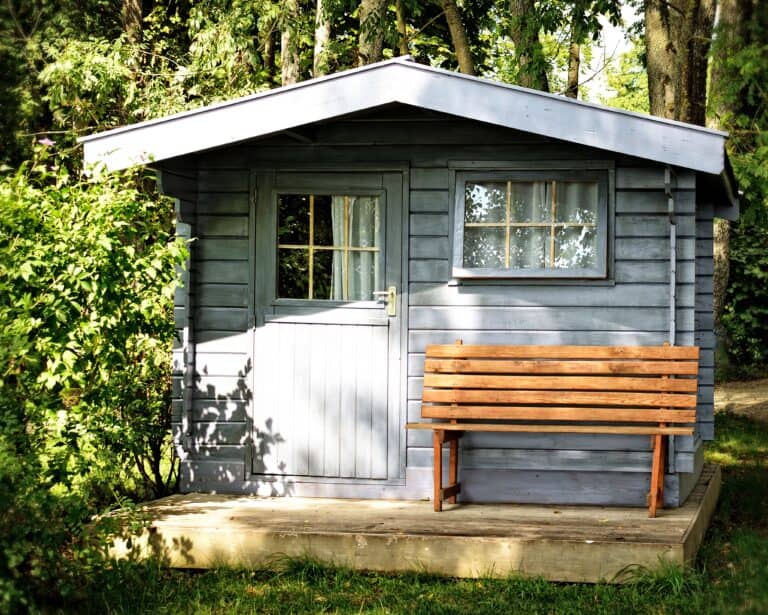We may receive a commission when you make a purchase from one of our links for products and services we recommend. As an Amazon Associate we earn from qualifying purchases. Thank you for support!

Do you ever wish you could write more and in less time?
I easily write at least 2,500+ words a day, and while it may seem like an impossible task to some, it is attainable for any writer – even if you don’t have much free time for writing.
To be truthful, 2,500 words for me is kind of on the low end of word counts – many days I write between 3,000 – 5,000 words!
Before you think I must lock myself in a room for 12 hours a day to do this, I want to tell you what my personal life is like.
I’m a mom. I have three kids. We have pets.
Most of my “glamorous life as a writer” is spent doing mom things: cleaning the house, cooking dinner, doing piles and piles of laundry, driving the kids to school, and grocery shopping.
Writing is always on my schedule each and every day – but the schedule gets filled pretty fast!
If I’m lucky, I’ll get a window of 3-4 hours to write per day. Most days, I only really have 2 hours to write. It’s the techniques and tips I’m going to share in this article that make all the difference between writing 500 words and 2,500 in that short amount of time.
Here’s How to Write 2,500+ Words a Day:
These tips and techniques will work for almost anyone. While everyone’s personal situation will vary, you will be able to write more words each day with a little practice and determination.
Step 1: Show Up to Write, Every Day
This may seem obvious, but just showing up is something I’ve struggled with on and off over the past 10 years as a professional freelance writer.
On days I did not have specific tasks, I would sometimes let writing slide. Weeks and months would pass without typing a single word. This was a big mistake, because in that time I could have written an entire book, or even enough content to fill an entire website such as this one.
It’s all too easy to put writing on the back burner, especially if its not something that has an immediate financial reward. I can’t tell you how many times I would get “stuck” simply by thinking other tasks were more important.
Worse, not writing created a vicious creativity-killing cycle of feeling bad about myself on the days I didn’t write anything. Those nasty little self-doubt phrases started creeping in, like “I’m not a writer” and “It’s impossible to make any decent money from writing”.
When you start thinking self-defeating thoughts like that, the creativity and focus disappears. It’s hard to write a cohesive sentence, let alone an article or book when you are in the cycle of anger towards yourself!
If you do find yourself feeling these types of things, one way to break out of the rut is to start small each day.
Start with a 5 minute free write.
The next day, challenge yourself to do 8 minutes.
Then 10 minutes.
Don’t worry about what you write – and if need be, try some of our creative poetry writing prompts.
Maybe poetry isn’t the type of thing you plan on writing professionally, but it can help wake up that inner writer inside of you and get back into the swing of things.
Work your way up to 30 minutes, and once you are there, make it a point to put writing on your schedule. List it on your planner or even on your calendar.
If your schedule is busy, find ways to prioritize it over other things that are time wasters. There are a lot of ways to make more time for writing!
Just getting into the routine of making writing a daily habit will help you write more consistently. It’s a simple obvious statement, but getting into a regular writing practice is the first step on the path of writing more efficiently.
Step 2: Have a Plan for Writing
Want to know the next secret for writing more words each time you sit down at your desk? You need to have a clear intention for what to write about before you start.
This is another one that probably sounds obvious, but let me explain in more detail.
Many writers start with a general idea and then try to write with no idea what they are even going to say. Oh sure, they may have a general concept, like “a story about cats” or “the history of the typewriter” – but the idea stops there.
If I sat at a keyboard right now and tried to just come up with a story about cats, I can tell you right now even I would be doomed to fail.
To prove my point, let me just try by writing this story in my head.
“Once upon a time there was a cat. The cat was brown. He lived in the second story of an apartment building. His owner was never home, so he was sad. Then he got bored one day…”
Yeah, I don’t think I have to tell you this is terrible writing! I’m pretty sure my 8 year old would have written a better story!
The secret to writing faster is to have a specific plan from the get-go. Your ideas and main points need to be obvious before you even sit down at the keyboard.
Lists: The Writer’s Lifesaver!

My go-to method for staying on track and having well developed ideas is to create lists. I use apps like and on my phone as well as my laptop, and so I’m able to think of the ideas almost anywhere.
I can do this while waiting in line at the grocery store or even while sitting in the carpool line for 20 minutes when I pick up the kids from school.
Using the list method, I make simple bullet points answering some basic questions. What needs to be said? What will make this interesting? What research, if any, should be done before I sit down to write?
Let’s say I’m writing a non-fiction book on the history of a typewriter. My simple list for writing the intro chapter might look like this:
Introduction
- How we take our laptop keyboards for granted
- Visual description of writers sitting in a workroom of typewriters
- The fascinating evolution for communication and connection with others
- Quote about typewriters
With these 4 main points illustrated in my mind already for the introduction, I’m ready to do the research quickly and then when I sit down to actually do the writing, everything will flow together easily.
While outlining and list-making isn’t for everyone, I find this method greatly helps me organize my thoughts and ideas before ever typing a single word.
Having a clear thought and intention every time you sit down at the keyboard is a lot easier than staring at the screen wondering what to write.
Another added bonus? Your editing and revising process will go a lot smoother as well!
Step 3: Improve Your Typing and Writing Speed
Do you type fast enough? Could you type faster?
My typing rate averages at about 65-75 words per minute. The average person types at about 40 words per minute.
By raising your typing capability to 20 more words per minute, this can greatly add up over an hour’s time. That’s 1,200 more words just by becoming more efficient at typing!
How to Type Faster In One Minute a Day

This is a simple exercise that can help you type far more efficiently than you already do.
If sitting at your keyboard is a grueling experience, this tip will help make writing far more comfortable and help you type more efficiently.
The first thing to do is get a rough idea of how many words per minute you can type on average.
This can be done through online typing speed tests. You can also simply set a timer, and then begin typing the words from the first page in a book in front of you.
When the timer for 1 minute stops, check your word count. How many words were you able to type without even writing? {Remember, you’re copying something that is already written – this is only to see how fast you can type!}
Of course, writing something is a little bit different from just copying words from a book that has already been published. However, often times when writing it is all too easy to get caught up in the formatting details. If you’re worried more about the font size and the spacing, you’re not writing. Save those things for editing and publishing!
If you want to improve your typing skills, you may want to consider taking a typing course online. However, you can always simply practice with 1 minute drills each day. It’s a good way to make your typing ability stronger, so that when those words do flow out of you easily and beautifully, you can make sure each and every one is captured.
Step 4: Don’t Edit As You Write
This is something that can spell disaster for most writers. How cliche is the image of a writer sitting at a desk typing a sentence, only to delete it and type a new sentence, only to delete that sentence? Or, maybe you think of the typical scene of a writer with crumpled up pieces of paper?

Throwing out every sentence you write my friends is not writing. This is more like rewriting and editing. Rewriting, editing and deleting while writing is a recipe for a disaster.
If you have a habit of doing this, you might find yourself spending more time than necessary to bring your thoughts and ideas into words on the page.
I know some days those words flow easier than other days, but if you’re struggling that much to write a full sentence without getting anywhere – take a 5 minute break and then come back.
Do your best to just sit at the keyboard and write all the thoughts down as they flow – don’t worry about trying to have the perfect grammar or spelling. You can always do this while you edit your work.
If nothing else, the next tip below will help you avoid getting stuck in a rewriting and editing cycle.
Step 5: Write the Hardest Parts Last
For me, the first two sentences of anything I write are usually the hardest. Maybe it’s typical writers block – thinking it has to be absolutely *perfect* before I can continue.
Unfortunately, the strive for perfection can sometimes result in becoming completely frozen. Instead of crafting a great piece, you end up writing absolutely nothing because you are stuck on the beginning sentence that you can’t quite get right.

If you find this happening to you, skip writing the introduction paragraph, or maybe even the first chapter.
Often times I will write the introduction or beginning of a chapter last. There is no rule that says as a writer you have to create the piece from beginning to end. You do not have to stick to a linear timeline while you write!
The same holds true for writing blog posts. When creating articles for this website, I almost never write the beginning paragraph at first. I start with the body of the content, and then once I have a good idea of everything that’s covered, I’m able to easily write a summary and introduction sentence that will hopefully draw readers in to learn more.
Again, a simple concept that increases your writing efficiency.
Step 6: Minimize Distractions
This could probably fall into the first tip I shared about making time for writing, but this wouldn’t be a complete article if I didn’t mention distractions. Distractions can be one of the most deadliest writing mood killers.

You can’t write while distracted. For me, this can be simple as having a cup of coffee next to me while I write. Before long, my coffee is empty, so I need to get up for a refill.
Eating next to your computer while typing is always a bad idea – this greatly reduces your typing speed. Since your brain is trying to process eating, you also aren’t fully focused on your writing.
Then we have other issues that can cause distraction. Things we may not even be able to fully control – like someone knocking on our door while we’re in the middle of typing the world’s most epic novel ever to grace the land.
It’s hard to predict these types of distractions, but it’s not impossible. You may have to set boundaries with people you live with, as well as friends and family. If you write from home, people might not take it that seriously, and so might interrupt you often. Clear boundaries will help minimize these types of distractions.
Your environment is also very important. If your desk is a cluttered mess, you might find yourself looking at the clutter and feeling bad for being disorganized instead of writing.
The clothes you wear are important also. You don’t want to wear something that is itchy or uncomfortable to sit in for very long!
Lastly, take some precautions to take care of your wrists and posture while writing. A good office chair that is ergonomically designed can make all the difference in how your back feels after an hour or two of writing! Many products also exist to help avoid wrist fatigue while writing if this becomes an issue for you.
Step 7: Do Your Research Before Writing

If things like people interrupting your work isn’t bad enough, we also have to remember how distracting the internet can be!
On any given social network at any moment there are millions of people actively posting new content – which means you can find yourself spending more time laughing at silly cat jokes than researching the specific breed of cat your main novel character owns.
Online research can be very dangerous for your writing craft, especially with all the shiny distractions of the internet.
It’s all too easy to go from a quick search to check the date of something to losing an hour of your time to social media or checking your email while your work goes unfinished.
To help me stay on task to finish my goal of writing at least 2,500+ words a day, I try to do as much research as possible before I even start. Using apps that block certain websites like Facebook while you do your research can also be very helpful.
If I find myself needing to check facts or a source while writing, I will make a note of this in the work and then only after everything is finished do I look up the information that I need.
Being so close to completion, I’m more motivated to stay on task if I do the research at the very end of the revising and editing process, rather than during the writing process.
We’re at 2,500 Words At This Article, And It Only Took Me 90 Minutes
I just noticed while I was typing this article now that I’m already at the 2,500+ word mark. I didn’t struggle to write this post, because I knew in advance what I would be writing about.
My total time to write this article, from start to completion: around 90 minutes.
While there are times I can write faster than this, I’m pretty impressed with myself. 25% of this article was written last night in the 30 minutes while my kids were doing their homework and dinner was cooking. The rest of this article was written in the hour before they woke up.
I don’t normally break up my writing schedule like this, but it helped me fit writing into a busy day’s schedule on a day I might have normally not been able to write. The best part? It’s only 8:30am today, so now I still have a full day ahead of me to work on my other writing projects!
Hopefully these tips will help you become a more efficient and happier writer – and help you start writing 2,500+ words or more a day.
Do you have any tips you’d like to share for how to become more efficient at writing? What tips from this article are ones you need to remind yourself to do more often? How many words do you average each day as a writer? Share your ideas, techniques, and thoughts in the comments below!







For Step 3, I highly recommend https://www.typingtest.com. I’ve been using it for years and my average has stayed consistently around 80 wpm. It also has a free training program.
Actually, I just re-took the test and got 88wpm average typing speed (Pro)!
Nice! Thanks for the suggestion!
Thanks. You writing is nice, warm and helpful. I genuinely enjoyed it.
Thank you, I am glad you enjoyed it!
I feel like I write more creatively by hand (but obviously you can’t publish a moleskine notebook), I ALWAYS make sure I’ve listed a few lines a dialogue for each character involved in the scene I’m writing. This semi-concrete (SUPER BRIEF) outline is like an ignition starter-I can usually get a little ways past my outline once I start. If I run into a block I take a few minutes to handwrite again. So I’m big on planning. I did TONS of research before I typed a word of my books and when I need to I go right back to google!
I totally agree with writing ideas down constantly. I always keep my notebook with me in case I’m waiting in the car for too long, or get to work a little early.
Best tip here is write what comes easy-don’t get fixated on a sene-pull everything you’ve written so far together every few weeks if you’re making good progress and take an inventory of what you still have to write-LISTS LISTS LISTS.
Great article thanks!
Lists are great! Thanks Stella! 🙂
Thank you sooooooo much!!!!
<3
Thanks a lot it is really helpful…great guidance.
The advice from this blog have been very helpful. I feel more motivated to write. Thank you very much.